Apulia is a region incredibly rich in wonderful landscapes and historical beauties. Alongside the most famous destinations, which attract tourists from Italy and the world every year, there are also some hidden treasures. One of these is the small fourteenth-century town of Martina Franca, located in the middle of the Itria Valley in the province of Taranto.
This lively hinterlandtown has a lot to offer to its visitors with history, arts, tradition, excellent food and cultural events. Can't wait to leave for Apulia? Very well, then get ready to discover with us what to see in Martina Franca on an extraordinary journey looking for the most beautiful wonders of the heel of Italy!

Where is Martina Franca
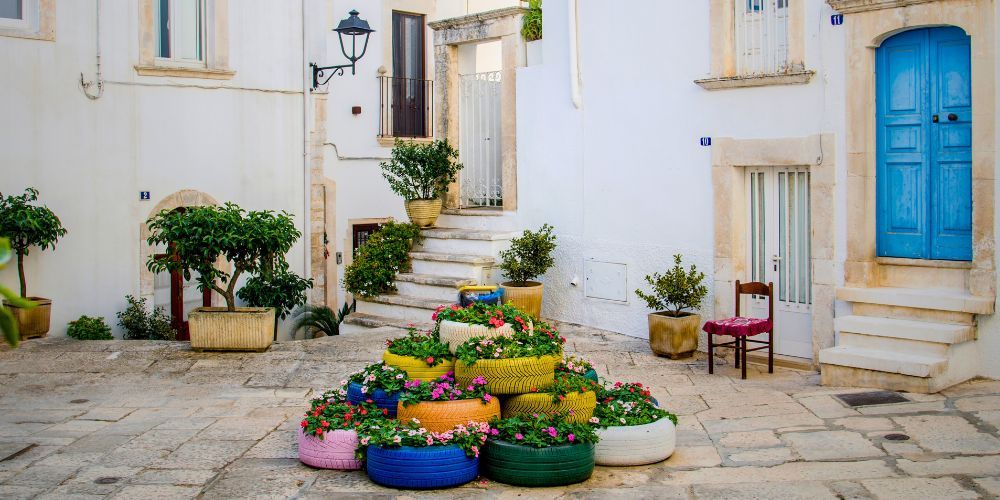
Among the most evocative villages to visit on your next trip to Apulia you certainly cannot miss Martina Franca, a jewel rich in history and art to be discovered in the heart of Itria Valley, a territory that extends between the provinces of Taranto, Brindisi and Bari famous for its bucolic landscapes dominated by farm stays and iconic trulli.
You can easily get to Martina Franca from Taranto by car or bus thanks to the SS172, a very important road that joins the SS16 Adriatica near the coastline and allows you to reach the most beautiful seaside locations in the region, such as Torre Canne, Savelletri, Monopoli and of course Polignano a Mare (in particular if you want to visit this village starting from Bari).
Starting from Brindisi instead, to get to Martina Franca we recommend to take the SS16 towards San Vito dei Normanni and then continue on the SP581 up to your destination, with the possibility of stopping by and visit Ceglie Messapica.
Book now a boat tour in Polignano a MareWhat to see in Martina Franca: the enchanting historic centre
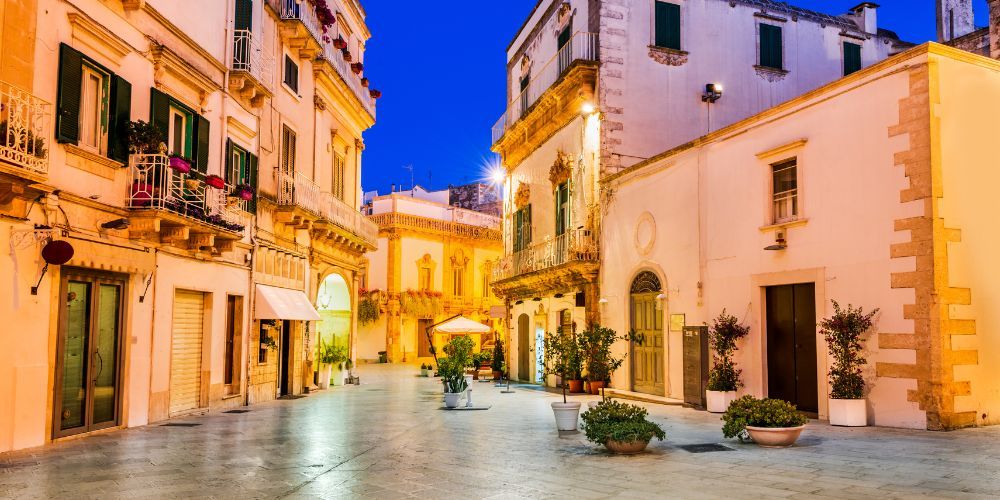
Made famous by the Angevin, in a territory that has actually been inhabited for millennia, Martina Franca was once a fortified town entirely surrounded by walls. Today the fortifications no longer exist, but the Renaissance or Baroque doors that mark the entrance to the historic center are still visible and perfectly preserved.
White is the predominant color: the plaster and the pavement that covers the streets make the whole city sparkle in the sun. The maze of small streets that open from time to time on the squares animated by cafes is the ideal starting point to get to know this place, and also the opportunity to be surprised by its monuments.
You will inevitably come across picturesque views, dead ends or one of the splendid historic buildings for which Martina Franca is famous. The Palazzo Ducale, for example, close to Porta Santo Stefano, is the seat of the Town Hall but also hosts exhibitions dedicated to both peasant and contemporary art. Inside there are wonderful frescoes decorating the halls of the building which is also the seat of the Itria Valley Festival. This important summer event has been held for several decades and is dedicated to opera.
Other historic buildings, such as Palazzo Torricella, Palazzo Nardelli, Palazzo Barnaba, are in town along with a series of buildings, perhaps a little less famous but no less interesting.
What to see in Martina Franca: suggestive churches between faith and art
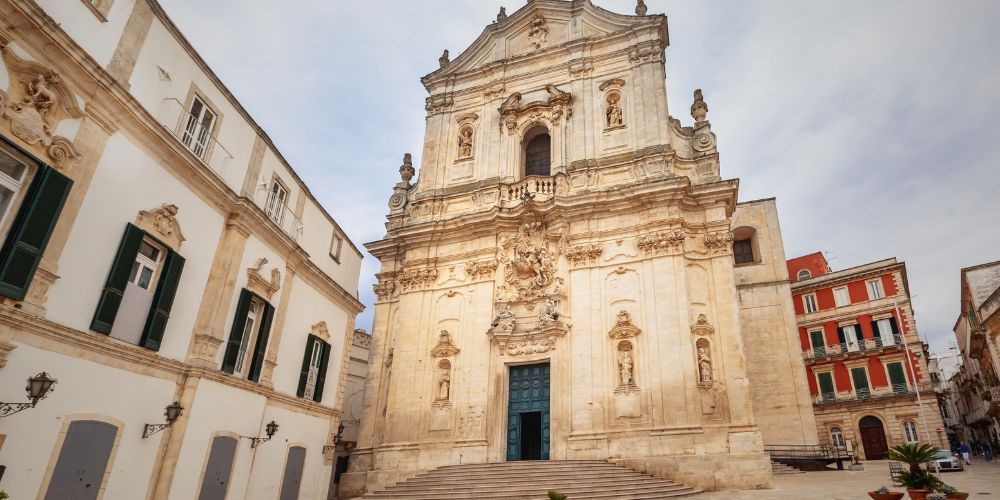
Cathedral of San Martino
Martina Franca owes its name to San Martino, to whom a beautiful Baroque church which is also the cathedral, is dedicated. The facade, with its rich and wonderful sculptures, does not go unnoticed for sure. Inside, instead, there is a majestic altar in polychrome marble and the relics of Santa Comasia and Santa Martina.
The church of Carmine also has a wonderful Baroque facade, imposing and elegant. On the other hand, the church of Sant'Antonio da Padova is more sober, located close to the homonymous square and Villa Garibaldi, a green oasis in the city centre perfect for finding some fresh during the hot summers of Apulia.
Last but not least, the church of San Vito stands out from the others for its austere facade, and with its seven centuries of age it is probably the oldest in town.
Do you want to visit other beautiful baroque churches on your next trip to Apulia? Then you absolutely must visit Lecce, the artistic jewel of the region!
The severe Apulia's landscape is in these expanses of giant olive trees, in these endless carpets of low vines, which stand upright by themselves. And there is no less charm, for those who know how to feel it, in this elementary landscape, than in the menhirs, dolmens, trulli.
Traveling across Itria Valley near Martina Franca
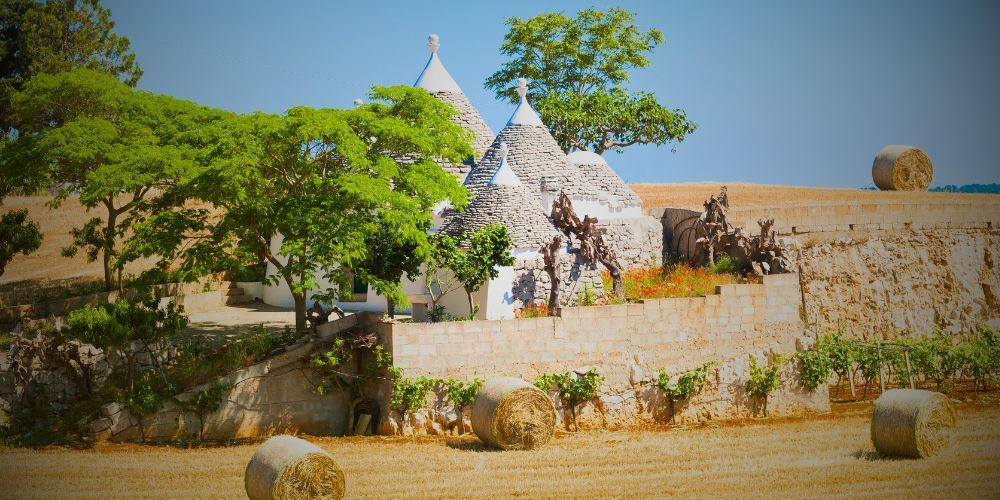
If you are curious to explore the Itria Valley, by car, by bike or by bus, visit the other lovely villages that characterize this region. The nature of this sometimes rugged and wild area is equally fascinating.
Alberobello, a small town which is also UNESCO heritage, is just over 15 km from Martina Franca. It is famous for its trulli, the very ancient stone houses with the typical cone roof. Some trulli can also be found in the countryside surrounding Martina Franca itself. Just 6 km away, however, there is a fairytale place:t's the small, charming village called Locorotondo, clinging to the slopes of a hill of Murge. Don't miss two more places nearby: the wonderful Cisternino, the perfect destination to experience Christmas in the Itria Valley, and Ostuni, the iconic white town surrounded by olive groves.
Apulia's countryside is awesome, with the blue sky overlooking the olive groves and the neverending vineyards. Martina Franca's sorroundings are no different, but if you look for a walk in the greenery, sheltered from the scorching sun, visit Bosco delle Pianelle. With its dense vegetation it guarantees shade and coolness!
Book now your guided tour in AlberobelloIs Martina Franca worth visiting?
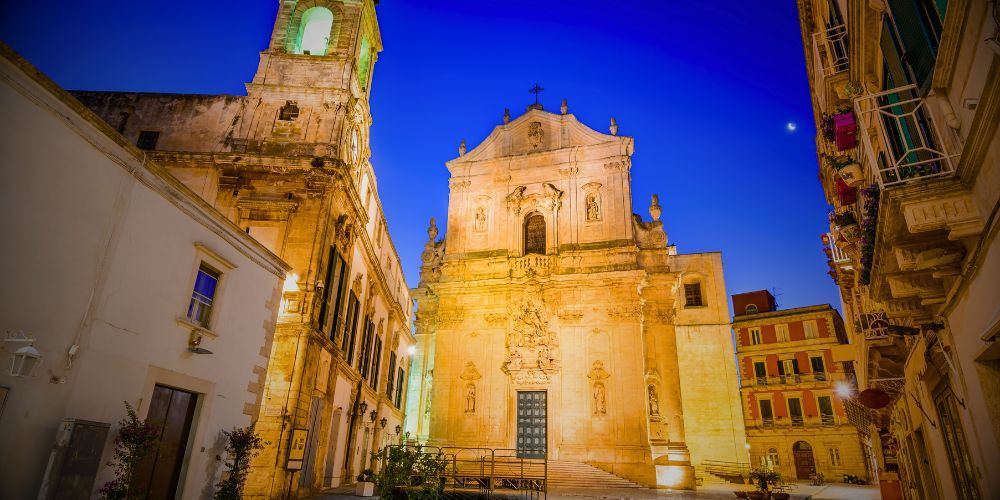
If you are wondering why you should visit Martina Franca and the enchanting Itria Valley, it is the perfect time to retrace in your mind all the beauties that await you in these places on your next trip discovering Apulia and its magic.
A dive into history, walking through historic centres with breathtaking artistic charm and white stone alleys that boast the soul of the territory. A sensory journey through flavors and scents, trying the specialties of traditional Apulian cuisine such as taralli, focaccia, orecchiette; but above all, being in his true homeland, Capocollo di Martina Franca.
And still, a leap into the most vivid nature in the Apulian countryside landscape, into the stories and traditions of a territory that looks forward to the future with enthusiasm and energy, without ever forgetting its cultural identity, the core of events of great importance such as the Itria Valley Festival.
You're already packing your baggage, uh? Plan your holiday discovering the heel of Italy the best way possible by checking out all our guides and travel tips!
About the author
Written on 27/05/2024


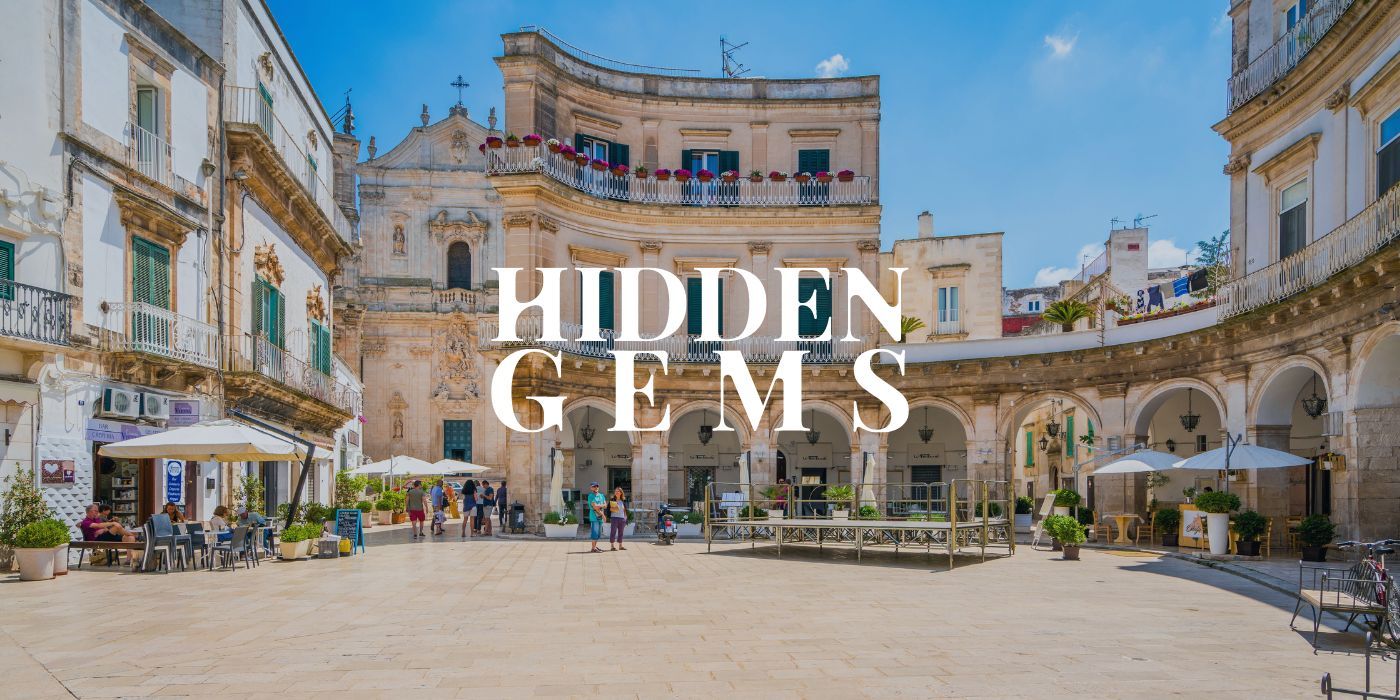
Paola Cirino
Traveling across the splendid Itria Valley, let's discover together Martina Franca, a small village with a rich heritage yet to be discovered.